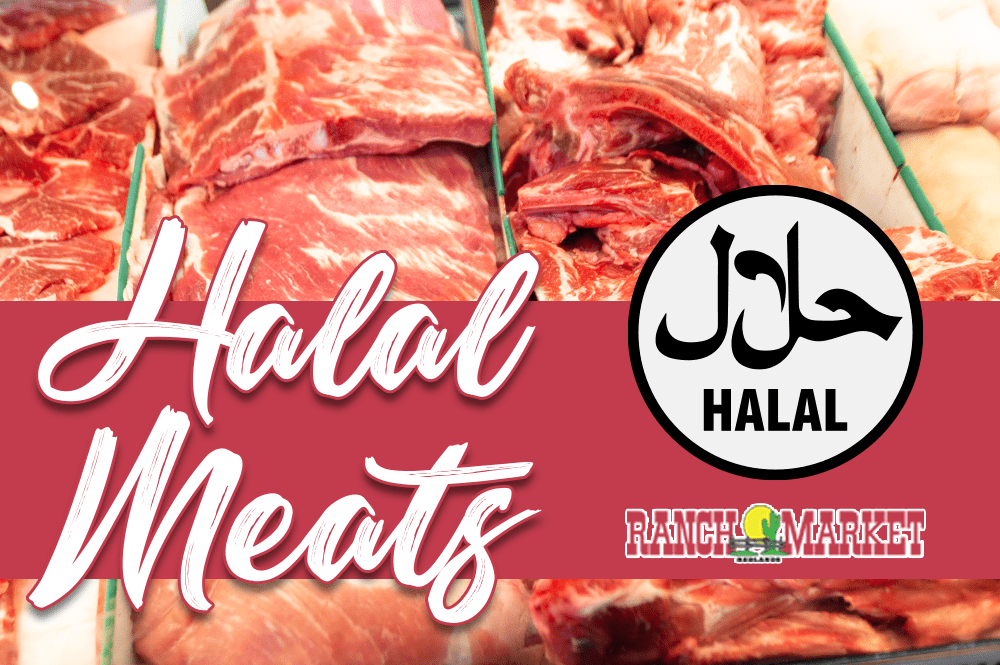Overview: What exactly is halal meat? Here is everything you need to know about the meat, and where you can buy it
When you visit a supermarket, you might come across a meat section labeled “Halal Meat.” You might have even seen a dedicated halal meat section in our meat department. But if it’s meat, too, why is it labeled differently and what makes it different from the others?
What is Halal Meat?
Exclusively used by non-Muslims to refer to slaughter in accordance with Islamic practices, the word Halal in Arabic means permissible (and Haram means non permissible/unlawful actions, for a fun fact).
In terms of dietary rules, Muslims are prohibited from eating pork, reptiles, and birds of prey. Besides, the animal must be alive and healthy by the time of slaughter with no physical ailment, and blood shall be drained from the carcass.
How is Halal Meat Prepared?
Muslims around the world practice the teachings of Islam, including all the dietary and social laws. With the increased awareness of culturally rich places, it’s essential to consider the cultural reasons behind halal meat.
During the slaughter, the butcher (usually a Muslim) recites a short verse from Holy Quran known as Tasmiyya or Shahada. Not only during the slaughter process, but before there’s a prerequisite called Bismillah when it comes to performing any task or embarking on a significant journey. It’s similar to when Orthodox Jews recite blessings/prayer before performing kosher slaughter.
The Islamic way of killing an animal is a harmless process called zabiha. Once the butcher recites the blessing, they use a surgically sharp instrument to cut the animal’s throat, blood vessels, and windpipe around the neck, draining blood from the body. In addition to this, the process shouldn’t be witnessed by any other animal to avoid emotional affliction.
Stunning killing is strictly forbidden in Islam, such as the use of bolt guns. Animals killed out of the ritual slaughter custom are considered carrion meat which again is Haram.
Halal Animals’ Feeding:
Rasheed Ahmad, the founder and president of the Muslim Consumer Group, states that for an animal to be truly halal, it should be fed a vegetarian diet.
They discard the food provided to chickens and cows on many farms since it is comprised of many animal byproducts. Halal animals also can’t be treated with antibiotics or growth hormones without the doubt that they may contain pork-based ingredients.
Not just with cow meat, but fish is is also included. Muslims don’t certify fish that’s farm-raised since the feeding is unclear. Only wild-caught fish is halal certified. And you’ll be glad to know that Redlands Ranch Market has organic and fresh fish!
Is Halal Meat Confined to Muslims Only:
Muslims don’t exclusively devour halal food/meat but are open to anyone who likes eating meat.
There are no nutritious differences but the butchering and cutting off the creature. And since there’s no restriction from an Islamic perspective, we’d suggest you take halal as quality assurance.
Is Halal Meat is Healthier:
The idea behind halal rules is to ensure that Muslims should care for their bodies – so their eating habits matter.
For this reason, genuine halal farmers adhere to a high standard of cleanliness. In most farms, the animals consume multiple growth hormones, chemicals, or antibiotics for rapid growth/fattening. Farmers must practice proper sanitation to be certified as halal.
What Does Science Say About Halal Meat:
Studies prove that organic meat with no added hormones or animal by-products is the healthy option. Research states:
Organic meat contains 43 percent Omega 3 polyunsaturated fatty acids known to reduce inflammation, protecting against cardiovascular diseases or neurotic declines.
Antibiotics are given outside the ailment to help fatten the animal before its due time. Since organic meat isn’t allowed to have anything inserted and has resistant bacteria, it contains fewer bugs which can be otherwise very dangerous.
Does Halal Meat Taste Better?
Besides the religious and health benefits, non-muslims who have tasted organic meat conclude that halal meat tastes better.
Studies show that the stressed animals before slaughter will lead to low-quality meat. While in an unstressed healthy animal, the glycogen converts into lactic acid, giving the animal a tender and flavorful taste. It absorbs spices well since the blood is drained out and turns out spicy with a delicious odor.
Redlands Ranch Market Meeting Halal Expectations:
As a community filled with cultural diversity and enriched with people from multiple backgrounds, Redlands Ranch Market ensures that our customers leave the market smiling with Halal Meat they desire.
Our customers place trust in us as we strive to become a dedicated hub for various cultures, including that of our Muslim customers.
We’ve expanded our meat department to include Certified Halal Products in response to customers requests. On your visit, you’ll find a section dedicated to the “Halal Only” meat case between our Marinated Meat Case and our International Deli.
We know your concern about the purity of meat you’re planning to buy. Here at Redlands Ranch Market, not only do we have a separate section, but also its own meat saw, grinder, and other cutting tools, dedicated solely to the Halal Meat section, strictly supervised not to mix with the rest of the departments.
Our slaughterhouse workers take every prerequisite step – from Tasmiyya to cutting the animal in one go. In addition to this, we have a farmhouse of our own where the animals are taken care of alongside their flock, supervised by the experts to ensure their health.
IN SUMMARY:
We now understand why halal meat is the go-to option for Muslims. Considering all the factors, the team at Redlands Ranch Market has decided to honor the request of their consumers. For more information on our halal meat options, other products we offer for Muslim culture, or just a general inquiry, feel free to reach out to us! We’d love to answer your questions and make your cooking process easier with ingredients that are fresh, affordable, and accessible!


